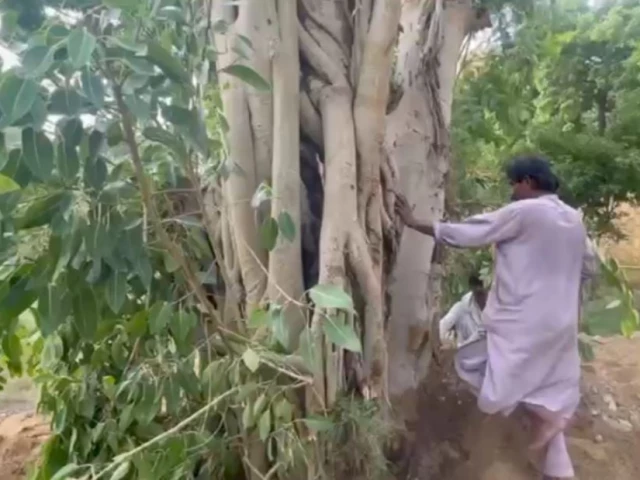Karachi:
A 150-year-old Banyan in Qasr-E-Naz on Club Road, which collapsed during the recent monsoon and strong winds, was successfully restored and replanted thanks to a joint effort from the Sindh forest department and managers of the Sindh fauna. Sindh -chief minister Syed Murad Ali Shah praised the restoration as “a vital stage in environmental protection” and “a living symbol connecting the past and the present”.
The rescue and rehabilitation process lasted almost 10 hours over two days, involving heavy machines, cranes and the use of special organic treatments. According to chief conservative Javed Mahar, the roots of the tree had been damaged due to the shortage of water, mushrooms and termites attacks. Instead of cutting it, the experts decided to carefully replant and relaunch the historic tree in an appropriate place nearby.
During the operation, the Neem and Kachnar trees surrounded were also moved to safer places. Assistant conservative Sindh wildlife, Mumtaz Soomro, said that the Banian was not just a tree but an “ecological heritage”. He noted that if the fallen trees are often cut and thrown away, their preservation can play a crucial role in maintaining ecological balance.
The chief minister welcomed the efforts of the forest and fauna teams, declaring that the initiative was not only aimed at saving a tree but protecting history, biodiversity and ensuring a greener and healthier future for future generations. He urged young people to recognize the importance of historical trees as “living symbols of heritage and environmental resilience”.

Qasr-E-Naz is a guest lodge belonging to the government located in the Karachi civilian area. It mainly serves as accommodation for officers of the federal and provincial government and parliamentarians during official visits.
The installation extends over approximately 2.6 acres, with approximately 0.92 acres of built zone comprising 64 single rooms and 37 family suites, and the rest used as open land.




